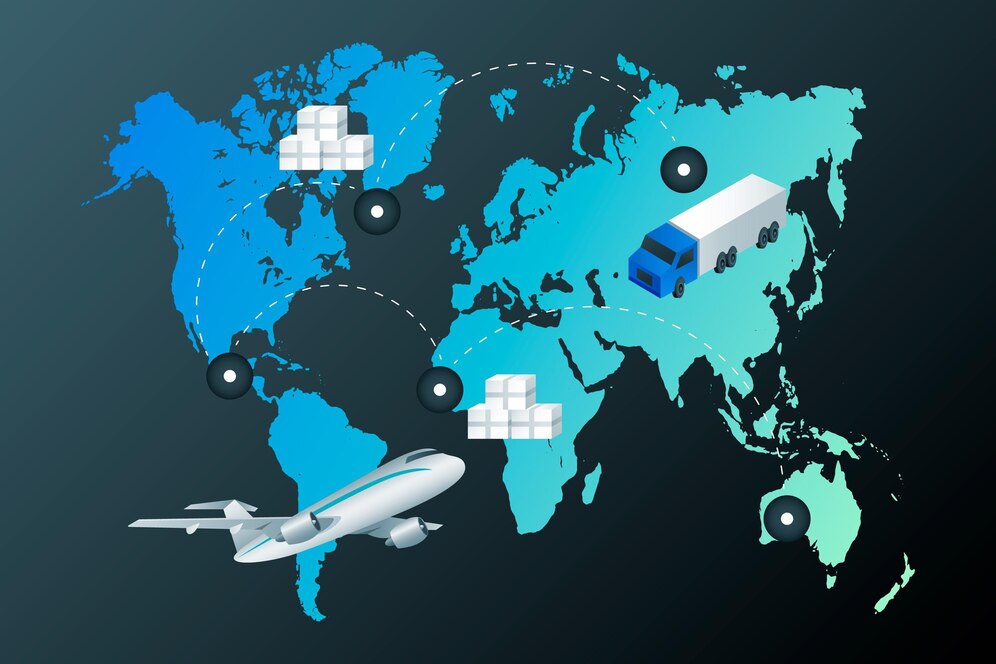Efficient sugar logistics are essential for ensuring the smooth and cost-effective logistics across the globe. With the global sugar trade being a complex and dynamic process, businesses must implement best practices in this movement. It is to optimize supply chain efficiency and minimize costs. In this blog post, we will explore various best practices in global sugar logistics, including logistics planning, transportation methods, cost efficiency, global challenges, and the importance of logistical partnerships.
Logistics Planning
Effective logistics planning is the foundation of successful sugar supply chain management. Businesses should develop comprehensive logistics plans that encompass all aspects of the supply chain, including procurement, transportation, warehousing, and distribution. By carefully planning logistics operations, businesses can streamline processes, reduce inefficiencies, and ensure timely delivery of sugar products to customers. Moreover, logistics planning should take into account factors such as seasonality, demand fluctuations, regulatory requirements, and geopolitical risks. By considering these variables in advance, businesses can proactively address potential challenges and mitigate disruptions in the supply chain.
Transportation Methods
Selecting the right transportation methods is critical for optimizing sugar logistics efficiency. Businesses can choose from various transportation modes, including road, rail, sea, and air, depending on factors such as distance, urgency, cost, and product characteristics. For long-distance transportation, sea freight is often the most cost-effective option, offering economies of scale and reliable transit times. However, for time-sensitive shipments or shorter distances, air freight may be preferable despite its higher cost. Additionally, businesses should consider multimodal transportation solutions to leverage the strengths of different transportation modes and minimize logistical bottlenecks.
Cost Efficiency
Cost efficiency is a key consideration in global sugar logistics, as transportation and distribution expenses can significantly impact the overall profitability of sugar trade operations. To enhance cost efficiency, businesses should implement measures such as route optimization, load consolidation, and inventory management. Furthermore, businesses can negotiate favorable freight rates with transportation providers, explore alternative shipping routes to minimize fuel costs and leverage technology solutions such as transportation management systems (TMS) to automate and optimize logistics processes.
Global Challenges
Global sugar logistics face various challenges, including regulatory compliance, customs clearance delays, infrastructure limitations, and geopolitical instability. Businesses must navigate these challenges effectively to maintain supply chain resilience and ensure uninterrupted sugar supply to customers. Moreover, volatile market conditions, currency fluctuations, and trade disputes can further complicate global sugar logistics operations. To mitigate these risks, businesses should adopt agile and adaptable logistics strategies, diversify sourcing and distribution channels, and stay informed about geopolitical developments and market trends.
Logistical Partnerships
Building strategic partnerships with logistics providers, and evaluating sugar suppliers, and other stakeholders is essential for optimizing global sugar logistics. Collaborative partnerships enable businesses to leverage expertise, resources, and infrastructure to overcome logistical challenges and drive operational excellence. Additionally, businesses can benefit from establishing long-term relationships with reliable logistical partners, such as freight forwarders, customs brokers, and third-party logistics (3PL) providers. These partnerships foster trust, communication, and mutual support, leading to improved supply chain performance and customer satisfaction. To learn more about contract negotiation techniques for sugar buyers, read our blog post on contract negotiation techniques for sugar buyers.
Conclusion
In conclusion, implementing best practices in global sugar logistics is essential for optimizing supply chain efficiency, minimizing costs, and ensuring customer satisfaction in the sugar trade industry. By focusing on logistics planning, selecting appropriate transportation methods, enhancing cost efficiency, addressing global challenges, and building strategic partnerships, businesses can overcome logistical complexities and achieve competitive advantage in the global sugar market. As the sugar trade continues to evolve in response to changing market dynamics and consumer preferences, businesses must remain agile, innovative, and collaborative in their approach to global sugar logistics.

